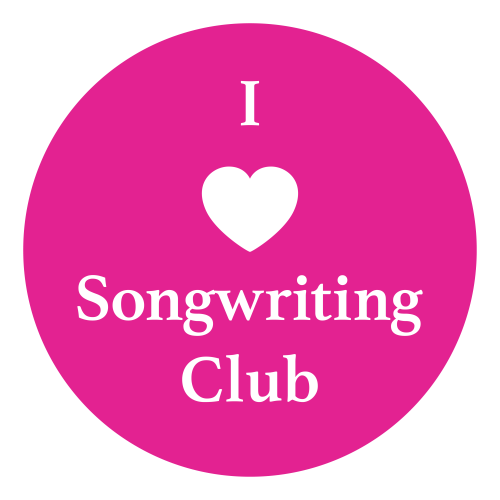Navigating the PR Dilemma: Insights from Super Duper Founder, Genna Alexopoulos
Based on the Podcast Episode: “Navigating the PR Dilemma: Insights from Super Duper Founder, Genna Alexopoulos” – Episode 39, The Magic of Songwriting with Francesca de Valence
Are you an artist pondering the age-old question of whether to dive into Public Relations (PR) when unveiling your latest masterpiece? The decision to engage with a PR firm can be daunting, especially when faced with monthly bills ranging from $2000 to $4000. To shed light on the intricacies of the PR landscape, the potential impact of publicity on your release, and what you can realistically anticipate, we spoke with a PR expert, Genna Alexopoulos.
As the founder of Super Duper, a music publicity and consulting company based in Melbourne, Genna brings a wealth of experience in spearheading PR strategies for notable artists such as Alex the Astronaut, Camp Cope, Jaguar Jonze, and Teen Jesus and the Jean Teasers. Her portfolio extends beyond the music industry, including collaborations with prestigious institutions like the Sydney Opera House, City Recital Hall, National Geographic, Zoos Victoria, Taronga Zoo, and more.
Based on a podcast conversation recorded during BIGSOUND, this article delves into the nuances of PR. It offers valuable insights for artists navigating the complex PR decision-making process and the impact of the multifaceted PR world on the artistic journey.
What is a publicist, and what is PR?
A publicist, public relations, PR, publicity – all of these terms are essentially marketing. Whether servicing songs to radio, news for articles to online and print publications, or pitching to playlist owners, a PR team manages and promotes an artist’s public image and reputation.
Publicists often work closely with media outlets, journalists, and other communication channels to shape and disseminate information that presents their client’s story (preferably in a favourable light). These strategic communication efforts aim to build and maintain positive relationships between the artist and their target audience while considering what works best for the individual channels the information is going through. By ensuring relevance to the media outlet, there is a better chance that the news or information will be better received!
The importance of correctly positioning the pitch
A publicist will often consider specifics about the artist and the story of their music (for example, a song with a particularly engaging message) and match these with outlets with audiences to which it will resonate. This is a great thing to consider, even before heading down the PR path.
For example, if you are a gear nerd, and the production of your new single involves some cool tech or a slew of instruments and pedals, the people who read Mixdown Magazine will likely be interested in reading about you. Positioning the elements of yourself and your music in a way that will appeal to a specific outlet and their audience increases your chances of exposure.
Telling people what is happening is not bragging
Self-confidence creeps into play when it comes time for an artist to tell their story or promote their work. No one wants to seem egotistical, but being able to confidently tell people who you are and the things you may have achieved, be it regular local radio play, huge support slots, or even large play count numbers on streaming platforms, is vital. It isn’t bragging – it’s just the facts.
If you are emailing or calling people and telling them how amazing you are without the stats and facts to back it up, this is a problem. Don’t be afraid to share your achievements because that is how you tell your story. It’s your story, after all, so own it! Always keep a list of all of your achievements for your bio, socials, grant applications and more.
How do artists and PR teams connect?
Quality PR teams, like Super Duper, say no to working with artists all of the time. This can be for a variety of reasons, such as whether or not the team likes the music, if they believe in the artist and their story if the act is diverse, where the artist is at in their career, and what the team’s current workload is.
Being a brand-new artist who is looking to promote their first single does not automatically disqualify you from acquiring a PR team. In these cases, it often comes down to how the team resonates with your music and the potential they see in it. It is VITAL to remember that PR teams, much like radio hosts and record label executives and more, are not the gatekeepers of the music industry. Their personal preferences do not dictate your success. If one PR company says no to your music, there are ten out there who will say yes.
Is PR worth the money it costs?
Every artist has likely heard of another artist who spent thousands of dollars on PR and got nothing in return. This story arises for a number of reasons:
- The PR company didn’t do their job or just did the bare minimum
- Nothing is guaranteed in PR; even the perfect pitch may not connect with its intended target, and PR teams do not have control over what a radio station or website will accept
- You haven’t found the right publicist for your music
To make sure you are not disillusioned by PR, there is a level of managing your own expectations that comes into play. Be aware of proactive PR teams that offer you the world. As a general rule, any marketing company that tells you to expect definitive results from their work is probably lying.
Set a precedent and be clear about what you should expect from your PR team before work begins, look at:
- Their existing roster, do they represent artists within your realm?
- The people who work for the PR team, try to talk to other artists they have worked with
- Is now the right time to get a publicist?
- Their fees?
- The avenues they will service (radio, print, digital, etc.)
What can an artist do to be their own PR agent?
There is a lot that you can do for your own music. Connecting with community radio and finding the people who play music within your genre is a great start. Form your own relationships with local street press, radio stations and more; invite them to your shows and bring them into your world.
When you email people, be very clear and offer more than just a quick introduction and the fact that you have a new song. The same can be said for being overly verbose. Be direct and clear, as this helps the person on the other end of the email understand who you are, what you want, and what happens next. Keep your emails to the point; your subject line encourages them to open the email; the email encourages them to listen to the song.
Want a little help managing your own PR?
Join Level Up Club to get real-time mentorship from professional artists and music industry leaders. This all happens completely online and is available for all time zones. You’ll receive comprehensive resources, templates and tools to help with your PR, career plan and much more. Learn more about Level Up Club today!




